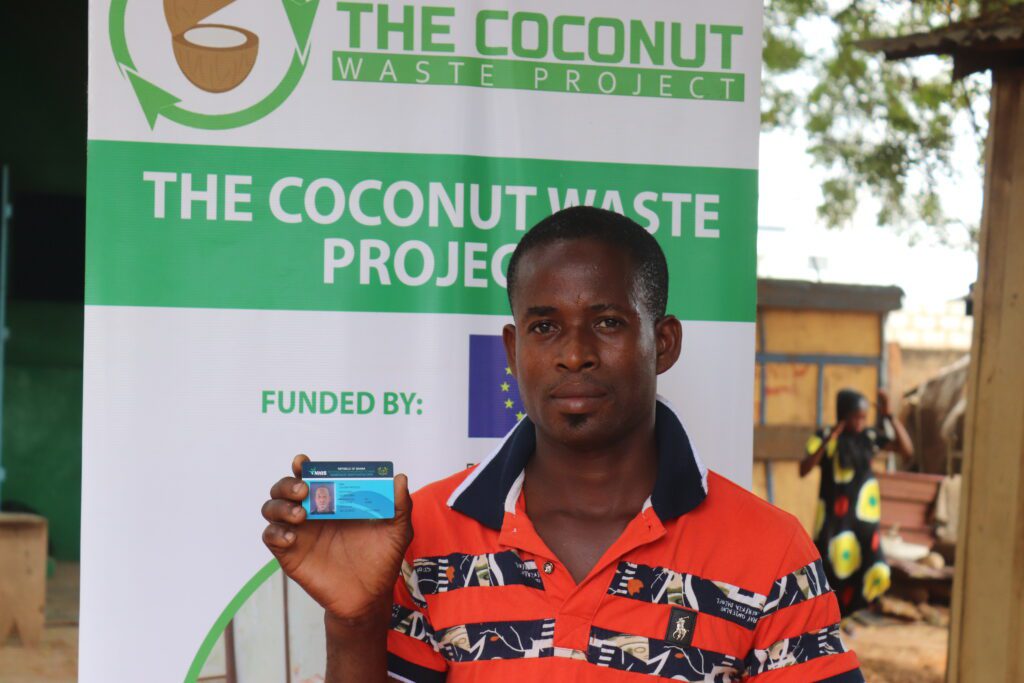Project Background
About The Project
The La Nkwantanang – Madina Municipality is one of the densely populated and cosmopolitan municipalities in the Greater Accra Region. The municipality is characterized by a mixture of medium and low-income homes. The low-income homes (which are predominantly Muslims) are manifested with the presence of slums often known as “Zongo”. Solid waste management is a major challenge in the municipality. A common solid waste in abundance in the municipality is coconut husks. The increased consumption of coconut coupled with poor management of the husks (waste) in the municipality has led to the indiscriminate disposal of this waste resource. In recent times, these husks are left to dry and later burnt hence contributing to carbon emissions. Mindful of this, the Coconut-Waste project was developed in line with the European Union’s (EU) objective of promoting a circular economy and local development. The Coconut-Waste Project is a four-year project, funded by the European Union and implemented by a consortium consisting of CERATH Development Organization (Lead), Tree Crops Center, and the La Nkwantanang – Madina Municipal Assembly.
Project Goal
The goal of the Coconut Waste Project is to achieve a green-circular economy and create livelihood opportunities through value-addition to coconut waste in the La Nkwantanang-Madina Municipality.
Project Objectives
- Set up a coconut waste aggregation system in the target municipality.
- Institute a processing center to convert coconut waste into selected useable products including cocopeat, paper, and charcoal.
- Establish linkages with market actors to procure value-added products.
- Develop and implement a monitoring and evaluation system for waste management, learning, and scaling of the project.
Technical Approach
The project will engage stakeholders to seek partnership to enhance the sustainability and replicability of the project. The next approach is capacity building for project beneficiaries on sustainable waste management, technology on waste aggregation, employability, and entrepreneurship training. Additionally, enhancing project beneficiaries’ access to social protection services. Also, there will be a series of monitoring and evaluation activities for learning, communication, and visibility.
Expected Outputs

An average of 34 tons of coconut waste aggregated daily within the municipality
100 youth employed in coconut husks aggregation and equipped with appropriate technologies.
A factory with an average of 25 tons of processed coconut husks products produced daily.
At least 10 market actors engaged to purchase coconut waste value-added products processed at the project factory
At least 2 waste entrepreneurship and learning events organized.
Expected Outcomes

- Increased knowledge and awareness of the coconut husks value chain.
- Improved sanitation conditions particularly related to coconut husks waste.
- Increased markets for aggregated coconut husks within LaNMMA.
- Increased employment for marginalized youth in the project area.
- Increased social protection for factory workers and coconut vendors.
